We all know hydration is crucial for our health, but let’s face it – sometimes chugging water all day just isn’t appealing. If you’re wondering how to stay hydrated without drinking water, you’re in the right place. Whether you’re not a fan of plain water, have a hectic schedule, or are looking for alternatives, this guide will explore 12 practical and innovative ways to stay hydrated without relying solely on drinking water. Get ready to discover some game-changing hydration hacks!
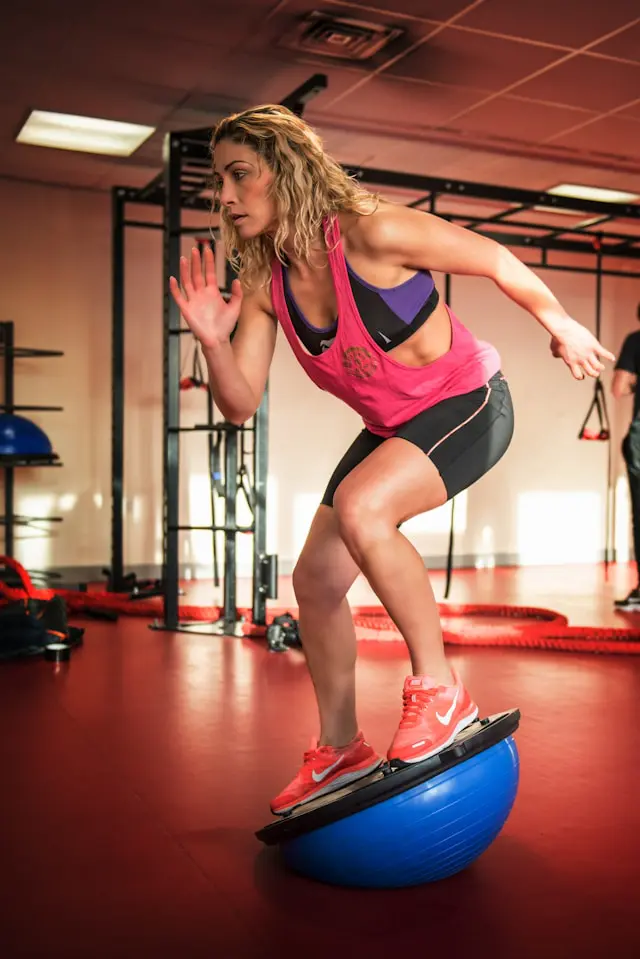
Table of Contents
- Understanding Hydration: More Than Just Quenching Thirst
- Recognizing Dehydration: Don’t Wait Until It’s Too Late
- Top 12 Tips to Stay Hydrated Without Drinking Water
- Hydration Myths and Misconceptions
- Conclusion: Hack Your Hydration
Understanding Hydration: More Than Just Quenching Thirst
Before we dive into the strategies, let’s quickly recap some facts about hydration. Proper hydration is crucial for numerous bodily functions and offers significant health benefits:
- Regulates body temperature
- Keeps joints lubricated
- Prevents infections
- Delivers nutrients to cells
- Maintains organ function
- Improves sleep quality, cognition, and mood
- Enhances physical performance and reduces fatigue during exercise
- Supports weight management by preventing thirst from being mistaken for hunger
- Promotes digestive health and prevents constipation
- Boosts kidney function, reducing the risk of kidney stones and urinary tract infections
Research shows that even mild dehydration can impair mood, memory, and brain performance. By maintaining proper hydration, you’re not just quenching your thirst – you’re supporting your body’s overall health and well-being. As we explore how to stay hydrated without drinking water, keep these benefits in mind as motivation for incorporating new hydration habits into your daily routine.
Recognizing Dehydration: Don’t Wait Until It’s Too Late
Knowing the signs of dehydration can help you take action before it affects your health. Watch out for:
- Persistent headaches
- Extreme thirst (often noticed too late)
- Dry mouth and skin
- Fatigue or dizziness
- Infrequent urination or dark urine
Now, let’s dive into our top 12 strategies for how to stay hydrated without drinking water.
Top 12 Tips to Stay Hydrated Without Drinking Water
1. Electrolyte Boost: Your Hydration Superhero
Electrolytes are like the unsung heroes of hydration. These minerals (sodium, potassium, magnesium, and calcium) are essential for maintaining fluid balance in your body. After a sweaty workout or on a scorching day, replenishing electrolytes is key.

Natural sources of electrolytes:
- Coconut water (rich in potassium)
- Bananas (high in potassium)
- Leafy greens (good source of magnesium)
- Salt (sodium, but use in moderation)
For convenience, especially during intense workouts, consider electrolyte tablets or sports drinks. Just be mindful of added sugars in some commercial products.
Nuun Sport Electrolyte Tablets are low in sugar, easy to carry, and come in various refreshing flavors like Strawberry Lemonade and Citrus Fruit, perfect for exercise and daily hydration.
2. Salt: Not Just for Seasoning
A pinch of salt can go a long way in helping your body retain water. But before you reach for the table salt, consider upgrading to a mineral-rich option.
Redmond Real Salt is unrefined and packed with 60 trace minerals that support hydration and overall health. Use it in cooking or add a tiny pinch to your morning gut-healing smoothie for an electrolyte boost.
3. Eat Your Water: Hydration Never Tasted So Good
One of the most delicious ways to boost your hydration is by consuming water-rich foods. Many fruits and vegetables have high water content, making them excellent choices for hydration.
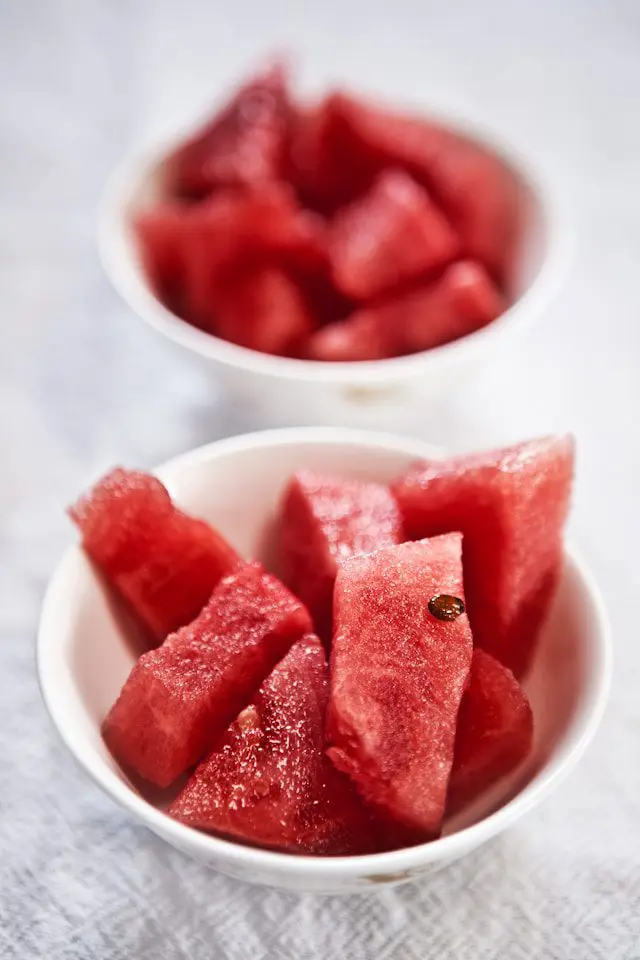
- Tomatoes (94% water)
- Watermelon (92% water)
- Cucumbers (96% water)
- Strawberries (92% water)
- Celery (95% water)
- Zucchini (95% water)
- Lettuce (96% water)
4. Infused Water: Flavor-Packed Hydration
If plain water bores you, infused water can be a game-changer. It’s a simple way to add natural flavor to your water without any artificial additives.
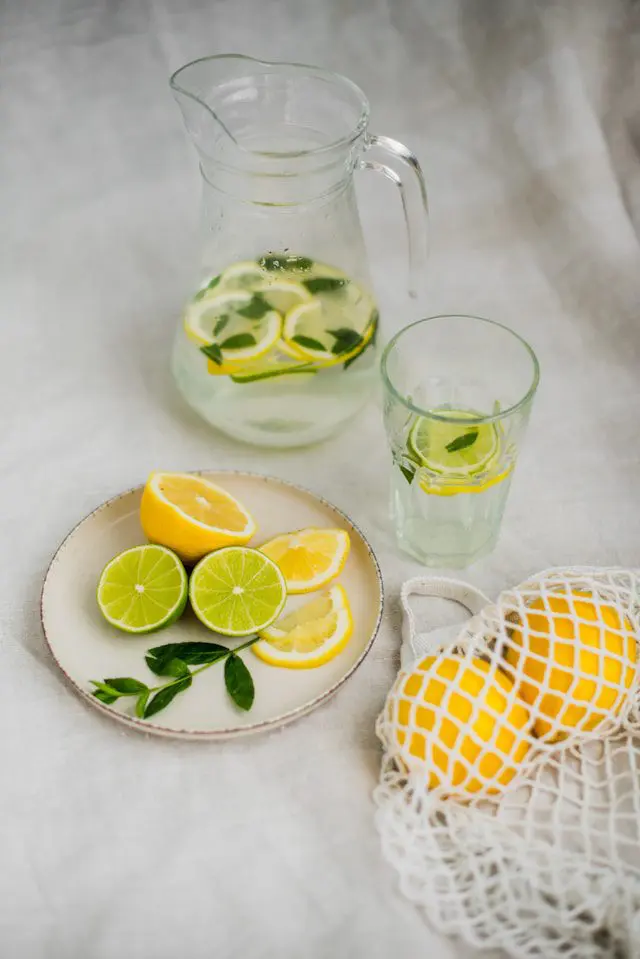
Popular infusion combinations:
- Cucumber and mint
- Lemon and ginger
- Strawberry and basil
- Orange and rosemary
Pro tip: Try frozen fruit cubes instead of regular ice cubes. As they melt, they’ll infuse your water with flavor and add a pop of color.
To make infused water preparation easier, try the Hydracy Fruit Infuser Water Bottle. This BPA-free bottle features a full-length infuser basket, allowing you to create delicious infused water on-the-go.
5. Balanced Meals: The Unsung Heroes of Hydration
Believe it or not, your meal composition plays a role in hydration. Your body gets 20% of its hydration requirements from the foods you eat. A balanced diet not only nourishes your body but also supports its hydration needs. While there’s no one-size-fits-all approach to meal composition for hydration, understanding how different nutrients contribute can help you make informed choices.
How Nutrients Support Hydration
Carbohydrates:
- Carbs, especially complex carbs, are essential for storing glycogen, which holds water in your muscles.
- Fiber-rich carbohydrates can help retain water in the digestive system.
- Examples: Quinoa, brown rice, sweet potatoes, whole-wheat pasta, fruits, and vegetables.
Proteins:
- Proteins help repair and build tissues and play a role in maintaining fluid balance.
- Moderate protein intake is important for overall health and doesn’t negatively impact hydration in well-nourished individuals.
- Examples: Chicken, turkey, fish, tofu, beans, and lentils.
Healthy Fats:
- While fats don’t directly contribute to hydration, they’re crucial for nutrient absorption and cell function.
- Some fats, like those found in fish and nuts, support overall health which in turn affects hydration.
- Examples: Avocado, nuts, seeds, olive oil, and fatty fish.
Hydration-friendly meal ideas:
- Grilled Chicken with Watermelon and Feta Salad
- Components: Lean protein (chicken), complex carbs (watermelon), healthy fats (feta)
- Hydration Benefit: Watermelon provides hydration, while the protein and fats help in overall nutrient balance.
- Greek Yogurt with Berries and Chia Seeds
- Components: Protein (Greek yogurt), fiber-rich fruits (berries), nutrient-dense seeds (chia)
- Hydration Benefit: Yogurt and berries provide hydration, and chia seeds can absorb up to 12 times their weight in water, creating a gel-like substance that can help prolong hydration.
- Quinoa Salad with Cucumber, Tomatoes, and Avocado
- Components: Complex carbs (quinoa), water-rich vegetables (cucumber, tomatoes), healthy fats (avocado)
- Hydration Benefit: High water content from vegetables, balanced with nutrients from quinoa and avocado.
By incorporating a balance of these nutrients into your meals, you can support your body’s overall health and hydration status. Remember, these meals should be part of a varied diet and accompanied by adequate fluid intake throughout the day.
6. Smart Hydration Timing: Small Sips, Big Impact
Instead of guzzling large amounts of water infrequently, try sipping smaller amounts of fluids throughout the day. This approach helps your body absorb and retain fluids more effectively.
Hydration timing tips:
- Set reminders on your phone to take a few sips every hour. The WaterMinder app allows you to log not just water, but also other beverages and even water-rich foods.
- Drink a glass of fluids before each meal. It will help you hydrate and feel fuller before eating.
- Have a beverage with every snack
Consider using a smart hydration bottle that tracks your fluid intake and reminds you to drink regularly. The HidrateSpark Steel Smart Water Bottle syncs with your smartphone to track your fluid intake and glows to remind you when it’s time to drink.
7. Hydrating Skincare: Moisturize from the Outside In
While it’s not a substitute for internal hydration, proper skincare can help your body retain moisture and support overall hydration. Your skin is your body’s largest organ, and keeping it well-hydrated can contribute to your overall hydration status.
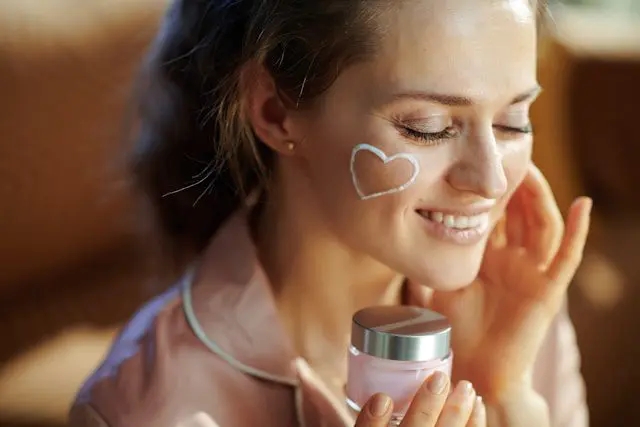
Hydration-boosting skincare tips:
- Use a humectant-rich moisturizer (ingredients like hyaluronic acid or glycerin)
- Apply moisturizer to damp skin to lock in hydration
- Use a facial mist throughout the day for a hydration boost
- Don’t forget to moisturize your body, not just your face
- Consider using a sleeping mask or overnight moisturizer for extra hydration
- Meditate: Learn more about how meditation benefits your skin
Try the Neutrogena Hydro Boost Water Gel for a lightweight, non-greasy moisturizer that delivers intense hydration. Its unique water-gel formula absorbs quickly and contains hyaluronic acid, which can hold up to 1000 times its weight in water, helping your skin stay hydrated throughout the day.
8. Alcohol and Caffeine: The Hydration Thieves
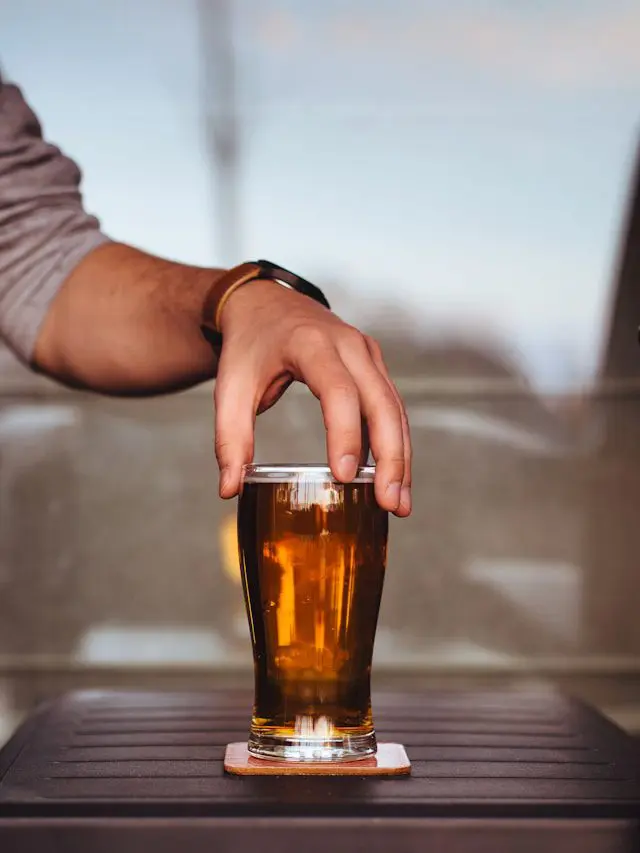
While that morning coffee or evening cocktail might be tempting, it’s essential to remember that both alcohol and caffeine can have diuretic effects. They can increase fluid loss through urination, but this effect varies in intensity.
Hydration tip: Alcohol has a more pronounced diuretic effect, making it crucial to balance each alcoholic drink with a glass of water. For caffeinated beverages, moderate consumption typically does not lead to significant dehydration, but it’s still beneficial to include water in your daily intake. Your body will thank you!
9. Soups and Broths: Warm Up Your Hydration Game
Don’t forget about warm options for hydration, especially in cooler weather. Clear soups and broths can be excellent sources of fluids and electrolytes.
Hydrating soup recipes:
Homemade options allow you to control sodium content. Add plenty of vegetables for extra nutrients and hydration.
10. Adapt to Your Environment: Climate-Smart Hydration
Your hydration needs can vary greatly depending on your environment. Hot, humid weather or high altitudes can increase your fluid requirements.
Environmental hydration tips:
- High altitudes: Increase your fluid intake to combat the effects of dry air and increased respiration.
- Hot weather: Increase fluid intake and opt for cooling foods like cucumber and watermelon.
- Cold weather: Don’t forget to hydrate! You might not feel as thirsty, but your body still needs fluids.
11. Herbal Teas: Sip Your Way to Hydration
Herbal teas are an excellent way to increase your fluid intake while enjoying a variety of flavors. Unlike caffeinated teas, herbal teas are generally hydrating and can be enjoyed hot or cold.
Hydrating herbal tea options:
- Chamomile (calming properties)
- Peppermint (refreshing and good for digestion)
- Hibiscus (rich in vitamin C)
- Rooibos (antioxidant-rich)
Experiment with different flavors and find your favorites. You can even mix them to create your own unique blends.
12. Plant-Based Milk: Nutrient-Rich Hydration
Plant-based milk can be an excellent source of hydration while also providing essential nutrients. The milk can be enjoyed on its own, in smoothies, or with cereal for a hydrating breakfast.
Hydrating milk options:
- Almond milk (low in calories, good source of vitamin E)
- Oat milk (often fortified with vitamins and minerals)
- Coconut milk (contains electrolytes)
Choose unsweetened varieties to avoid excess sugar. Learn more how to choose the healthiest plant-based milk.
Hydration Myths and Misconceptions
As we explore how to stay hydrated without drinking water, it’s important to address some common myths:
- Myth: You need 8 glasses of water a day.
- Reality: Hydration needs vary based on individual factors like activity level, climate, and diet. Focus on listening to your body and monitoring urine color instead.
- Myth: If you’re thirsty, you’re already dehydrated.
- Reality: Mild thirst is your body’s way of telling you to drink, not a sign of significant dehydration.
- Myth: Clear urine means you’re well-hydrated.
- Reality: While dark urine can indicate dehydration, completely clear urine might mean you’re overhydrated. Aim for a light yellow color.
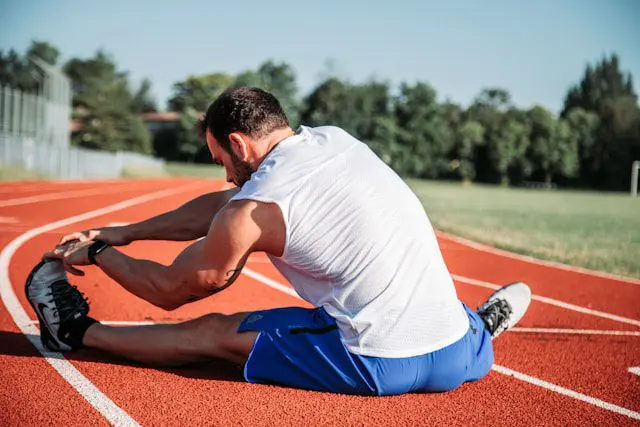
Conclusion: Hack Your Hydration
Remember, while these strategies can help you stay hydrated without relying solely on plain water, it’s still important to include water in your daily fluid intake. The key is to find a balance that works for your lifestyle and preferences, ensuring optimal hydration throughout the day.
By incorporating these innovative methods into your routine, you’ll be well on your way to staying hydrated and supporting your overall health and well-being. Cheers to creative hydration!
To further support your wellness journey, check out these related articles:
- Did you know coffee is a diuretic? Check out our guide on how to quit coffee if you are struggling with dehydration.
- Learn whether non-gmo produce is all it is hyped up to be.
- Uncover the top 10 benefits of acupuncture therapy and how it can improve your health and wellness.
We’d love to hear from you! What’s your favorite way to stay hydrated without drinking water? Do you have any hydration hacks to share? Drop a comment below and let us know!
Don’t miss out on more health and wellness tips! Subscribe to our Gorilla Gazette newsletter for more updates and tips on staying healthy and hydrated.







Leave a Reply